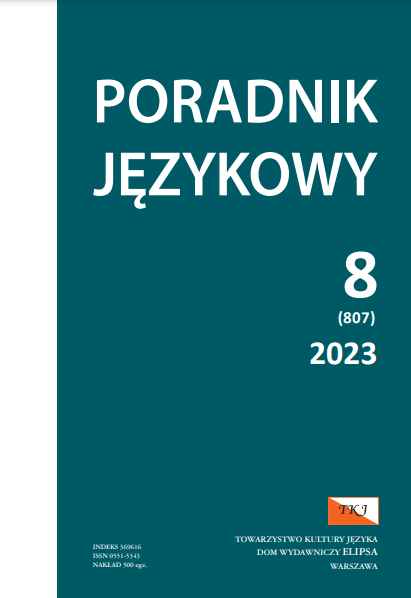GŁUPI / IDIOTYCZNY / NIESZCZĘSNY DŁUGOPIS, CZYLI O NIE TYLKO EKSPRESYWNYM ZNACZENIU PEWNEGO TYPU PRZYMIOTNIKÓW
GŁUPI / IDIOTYCZNY / NIESZCZĘSNY DŁUGOPIS (A STUPID / RIDICULOUS / WRETCHED PEN) OR NOT ONLY EXPRESSIVE MEANINGS OF CERTAIN TYPES OF ADJECTIVES
Author(s): Katarzyna Doboszyńska-MarkiewiczSubject(s): Lexis, Semantics, Western Slavic Languages, Stylistics
Published by: Dom Wydawniczy ELIPSA
Keywords: Adjective; metatext; grammaticalisation; assertion;
Summary/Abstract: This article shows lexemes such as głupi (gwóźdź), debilne (zebranie), idiotyczny (ząb), nieszczęsne (dokumenty) (a stupid/foolish/ridiculous/wretched (nail/meeting/tooth/document)) as a subgroup of metapredicative adjectives with expressive and colloquial markedness. When they moved to the level of speaking about speaking, they lost some of the formal characteristics of typical adjectives (they are non-contrastive, non-negatable, nod-gradable among other features) and the meanings associated with mental impairment, illness, and other misfortunes have changed into the carrier of the evaluation ‘it’s not worth talking about’. This process falls into the research on grammaticalisation. This article provides an overview of dictionary entries of the analysed expressions and the author’s preliminary hypothesis on their capability to reinforce assertion.
Journal: Poradnik Językowy
- Issue Year: 2023
- Issue No: 08
- Page Range: 48-59
- Page Count: 12
- Language: Polish

